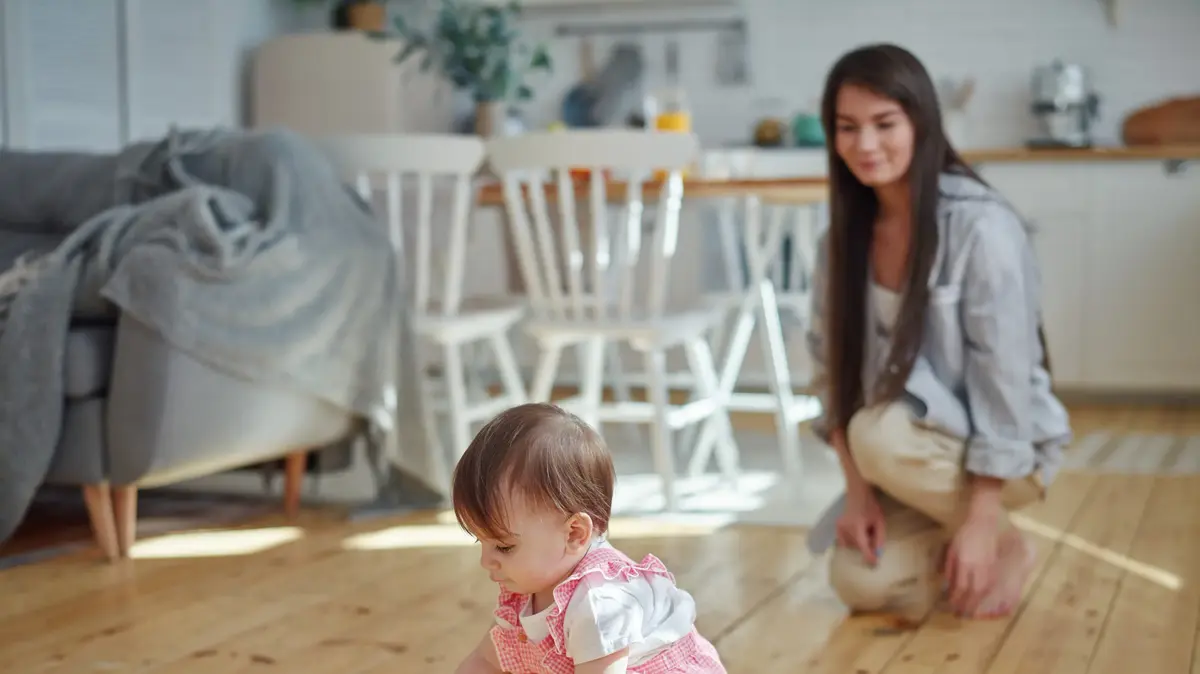health
parenthood
Child health
Should you stop your child's nap before going to an urban kindergarten?
Many parents of toddlers who go to municipal kindergarten worry that their children will be very tired following the cessation of childbirth at this age.
Tags
Sleep
afternoon nap
Gardens
The education system
Children
Toddlers
Yulia Tamir Dolzhensky
Wednesday, 18 August 2021, 11:09 Updated: 12:06
Share on Facebook
Share on WhatsApp
Share on general
Share on general
Share on Twitter
Share on Email
0 comments
For many parents the coming school year will open with a lot of excitement and apprehension while their child enters the education system and municipal kindergartens.
One of the most prominent concerns of parents is the cessation of the noon year in the municipal kindergartens and the adaptation of the little ones to a completely different agenda that includes, among other things, fatigue in the first months.
So is it advisable to accustom them to the lack of sleep right now?
Daytime sleep is part of the normal daily routine of infants and young children. Although there is great variation in the amount of sleep per day among different children of the same age, there is no dispute Fall asleep during the day naturally.However, while the tendency to sleep at night is maintained throughout life, the tendency to sleep during the day gradually disappears as the children grow older.
More on Walla!
Your kids must go to bed by 8. That's the reason
To the full article
It is important to understand that daytime sleep is a complement to night sleep and is different from it.
Because babies and young children grow at an accelerated rate and are also in an ongoing and intense learning process - they need extra sleep for the night.
However, the urge to anesthetize is weaker than at night and it disappears as the children grow up and provide the full need for sleep at night.
The need for lunches decreases as you get older.
Old children (Photo: ShutterStock)
How do you know when to stop?
One of the symptoms that suggests a decrease in the need to sleep at noon for some children is the difficulty of children falling asleep at noon on weekends at home - when they are still sleeping at noon in kindergarten.
The explanation for this lies in the fact that one of the things that helps with anesthesia at noon is the habit, i.e. the tendency to fall asleep under fixed conditions and need these fixed conditions in order to fall asleep.
If the child has an excellent anesthesia habit at noon in the kindergarten, which includes the same sleeping ritual for all children every day: a regular time, changing a diaper and clothes and a tidy bed, then the chances of the child falling asleep are very high.
At home, on the other hand, on weekends there is usually no order and routine (this is natural and normal, even for adults the routine goes awry on weekends) so the child is so distracted that he is "not in his head" to fall asleep, even though he may be very tired and nervous. On the weekends the child experiences the presence of his parents throughout the day and this is definitely more exciting and thrilling than retiring to sleep.
More on Walla!
Your children have no sleep problems, have difficulty parting
What causes babies to sleep half the day, and what happens to those who do not get enough sleep?
He is no longer a baby: this is how we will prepare the child for a municipal kindergarten
Do not compromise on unsatisfactory sex: this is how you will improve your performance - with an exclusive discount for the holidays
Later, as those children grow up, another phenomenon begins to emerge that indicates a decrease in the need to complete sleep at noon and is the difficulty of falling asleep in the evening, for the night's sleep, when it was until now a normal and "reasonable" hour.
As time goes on, the parents realize that these children have difficulty falling asleep and that the hour of anesthesia is delayed and delayed.
This delay in anesthesia time occurs in different children of different ages: some children whose noon sleep conflicts with night sleep at two years plus a few months while others actually need the noon sleep until age four and older.
Of course, this tendency is interrupted as soon as you stop putting the child to bed for the nap - in Israel it usually happens after the age of 3. This is an arbitrary decision of the Ministry of Education, which is not adapted to each child's personal needs.
In Israel, children are entitled to a free urban kindergarten, starting with the fourth year of their lives and this involves giving up the noon year.
An arbitrary decision of the Ministry of Education, which is not adapted to the personal needs of each child.
Kindergarten (Photo: ShutterStock)
As mentioned, some of the children benefit from a better night's sleep: a recently published article examines the contribution and consequences of nap sleeping on toddlers aged 3-5. The study examined the effect of afternoon sleep on the cognitive, social and emotional functions of toddlers in this age range.
The findings showed first and foremost that the total amount of sleep per day in children sleeping at noon did not exceed the amount of sleep of children who do not sleep at noon - so the total sleep is simply divided in children sleeping at noon into two parts, while concentrating on a single long sleep period in children who avoid sleep. In practice what has been found is that children who sleep at noon tend to fall asleep about an hour and later in the night compared to children who do not sleep at noon.
One of the reasons for these findings may be the formation of a vicious circle: sleeping at noon makes it difficult for children to fall asleep at an "earlier" hour.
This can make it difficult to get up in the morning due to the late anesthesia.
Getting up early due to routine constraints causes children to function poorly during the day, fatigue and of course the tendency to sleep at noon in order to supplement the lack of sleep.
The way to break the vicious circle in children who show a tendency after the anesthesia hour over the age of 3 years is probably through a cut, or cancellation of the nap.
Lack of sleep can impair adaptation to the garden
On the other hand, as mentioned, there are children for whom the afternoon nap is essential and contributes to their functioning and development well beyond menopause. Without a nap at noon, these children may have difficulty adjusting to urban kindergartens as a result of the acute day-to-day sleep deprivation in the first period in kindergarten. The recommendation in these cases is to reduce the activity after kindergarten, pick up the children at home, give up exhausting social activities such as classes and the like, and instead put these children to bed as early as possible, after a relatively early dinner.
The period of adjustment to a routine without a noon nap is also individual - there are children who adapt easily and their night's sleep lengthens accordingly, while others have more difficulty functioning in the late afternoon and evening hours. In some cases, early bedtime and giving up activity after kindergarten are recommended for a few months.
Either way, it is very important to pay attention to each child’s individual needs and adjust the bedtime to the night’s sleep and the afternoon activity level individually for each child.
This consideration should be taken into account both by parents and by gardeners and caregivers.
Share on Facebook
Share on WhatsApp
Share on general
Share on general
Share on Twitter
Share on Email
0 comments















/cloudfront-eu-central-1.images.arcpublishing.com/prisa/IGZ7GOCXZ5GUPAQ2HWGK6Z76BU.jpg)